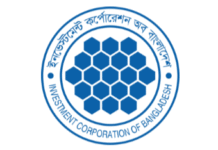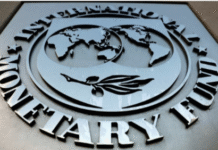
Stock prices of listed drug makers rose more than the benchmark index of the Dhaka bourse during the last three months thanks to optimism about higher profits of the companies during the pandemic.
Drugmakers were largely immune to the economic malaise brought on by the coronavirus, which is why investors were pinning their hopes on these companies, said Shahidul Islam, chief executive officer of VIPB Asset Management Company, which manages funds worth Tk 250 crore.
“When all the companies were staring at mounting losses, the pharmaceutical companies were faring well.”
On top of that, stocks of many top pharmaceutical companies had remained undervalued for long and their price-earnings (PE) ratio was between 9 and 10, so investors were pouring money into these stocks, Islam added.
When PE ratio is lower than 15, it is usually considered a safe investment, according to market insiders.
Furthermore, Beximco, Beacon and Square got permission to produce remdesivir, an antiviral drug that has proved effective in treating COVID-19. As a result, their stock prices were flying in the last three months.
Beximco Pharma though was a cut above the rest during the pandemic: not only was it the first drugmaker in the world to manufacture remdesivir, it was the first Bangladeshi company to export the lifesaving drug, too.
Its stock soared 69 per cent during the period. And in July, it topped the turnover chart, followed by Square Pharmaceuticals, Grameenphone, Bangladesh Submarine Cables and Beacon Pharmaceuticals, according to a report of LankaBangla Securities.
As the demand for pharmaceutical products was high during the last three months, investors tried to buy their shares expecting higher returns, said Khairul Bashar Abu Taher Mohammed, chief executive officer of MTB Capital, a merchant bank.
The companies’ export earnings were also higher during the period, he added.
Export of pharmaceutical products rose 49 per cent year-on-year to $17 million in July, according to the Export Promotion Bureau.
However, an official of a listed pharma company said the sales of prescription-based medicines fell during the April-June quarter.
“People tried their best to avoid visiting doctors amid the pandemic, so drug intake was lower during the quarter.”
But at the onset of the pandemic, sales of some medicines went through the roof due to panic-buying.
Considering all the aspects, it is assumed that profit and turnover of the pharma companies may fall about 20 per cent in the April-June quarter, said the official on condition of anonymity as he is not authorized to speak with the media.
But as people have started to see doctors like before and take prescription-based medicines, drug makers may witness higher profits in the first quarter of the current fiscal year, he said, adding that their export earnings also soared thanks to higher demand for remdesivir in the global markets.
“The local consumption of medicines is also very high because of our huge population. So, the stock prices of the pharmaceutical companies are expected to rise during the pandemic,” said Bashar, who is also a former secretary-general of Bangladesh Merchant Bankers’ Association.
Some of the listed companies have started to produce remdesivir, which will also have an impact on their stock prices.
“Doctors use mostly local medicines in treating COVID-19 patients. This is another inspiring matter that is attracting investors to the pharmaceutical sector,” he added.









